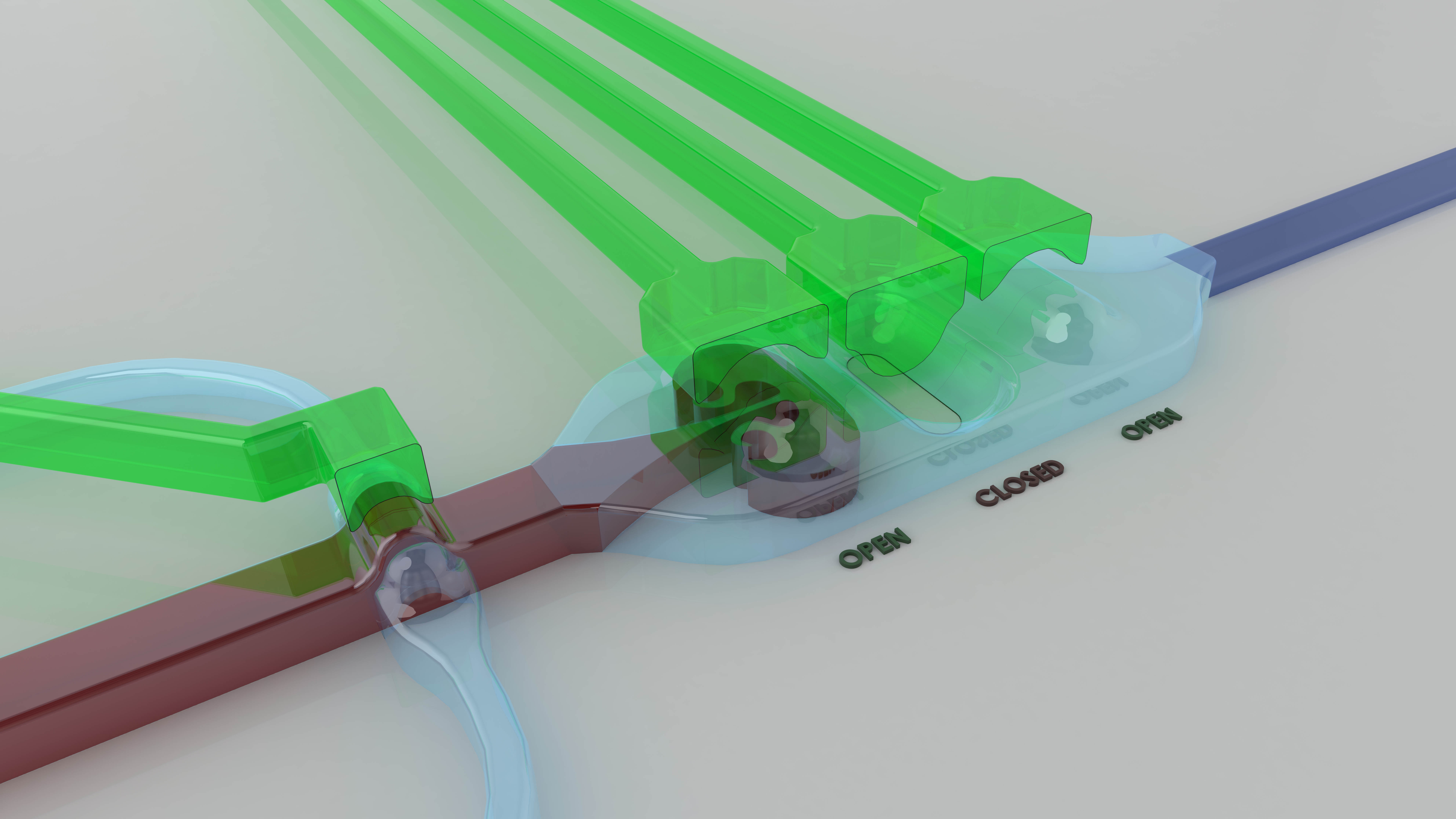Lab-on-a-chip Advances Search for Anti-Clotting Drugs
A novel ‘lab-on-a-chip’ the size of a postage stamp could soon advance the developments of safer anti-clotting drugs for heart attack and stroke prevention. The effective use of current anti-clotting drugs are limited due to risk in complications which prompted the need for alternative therapeutics that can be safe to avoid the risk of a fatal bleed and strong enough for preventing blood clotting formation.
RMIT.EDU: The chip features a unique system of tiny channels and pumps for rapidly manipulating fluids.
Now, the new biocompatible lab-on-a-chip, which is detailed procedurally in the journal Analytical Chemistry, will help accelerate the search for new anti-clotting drugs. The development was designed to work with the complexity and sensitivity of the biology of blood.
"Blood is extremely sensitive to artificial surfaces and clots very easily, so blood-handling technologies must be equally sensitive," says lead investigator Dr. Warwick Nesbitt, who worked with various collaborators to pioneer the device. "We've combined a deep understanding of the biology of blood with precision microfabrication engineering and design, to deliver a device that can work with whole blood and produce reliable results.
The device can effectively function as a medical pathology laboratory onto a small chip, and uses quick automated processes that can be achieved in a few minutes which would instead take days in a full-sized lab. It features a system of micropumps and unique analysis tools to study the effectiveness of chemical compounds on blood clots.
Learn more about the early history of lab on a chip:
"We hope this powerful new tool will give researchers an edge in delivering better and safer anti-clotting treatments, to improve the health and wellbeing of millions around the world."
"It's a key step towards the development of quick and efficient microsystems for pre-clinical and clinical hematology screening and diagnostics,” says Dr. Crispin Szydzik on how the micro lab can mimic conditions inside blood vessels.
Source: Science Daily
-
APR 30, 2024Immuno-Oncology Virtual Event Series 2024
-
MAY 07, 20243rd International Biosecurity Virtual Symposium
-
JUN 06, 2024The Future of Scientific Conferencing
- See More


















































